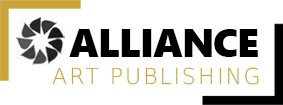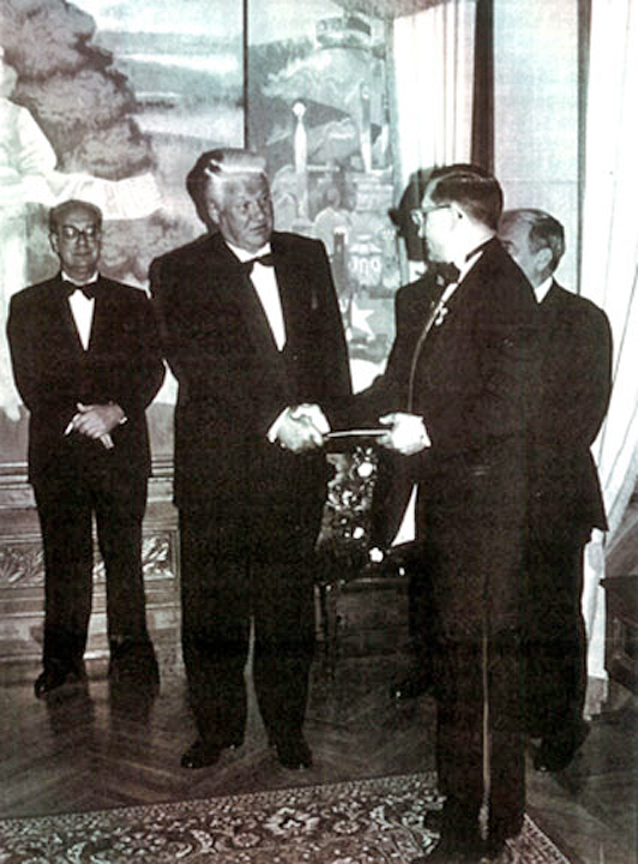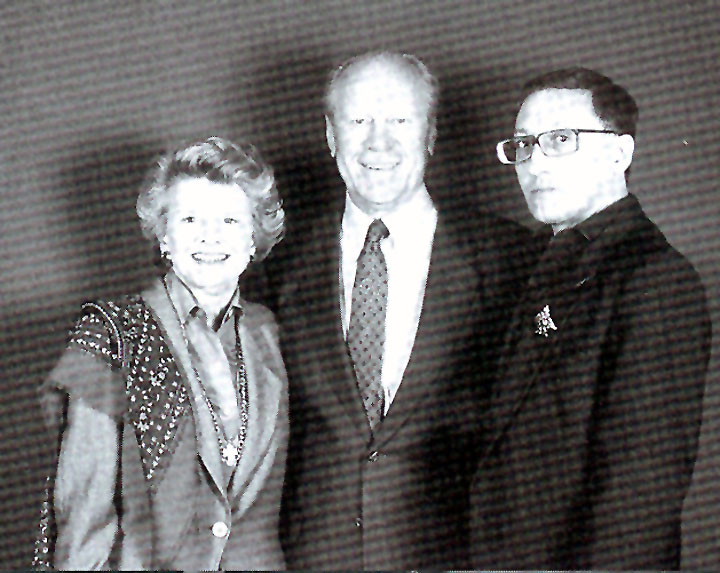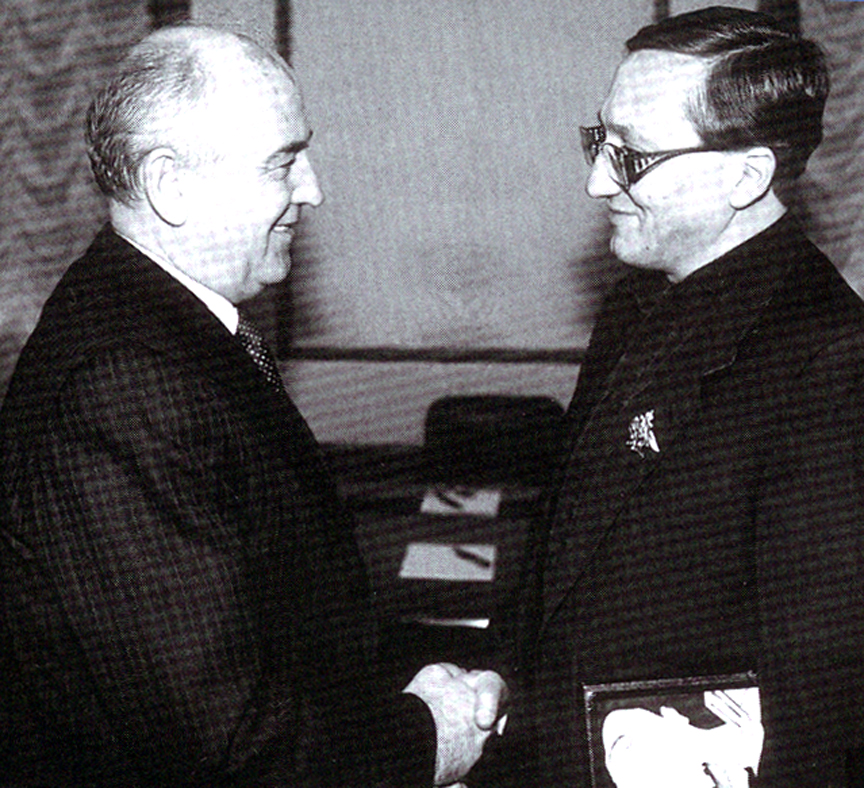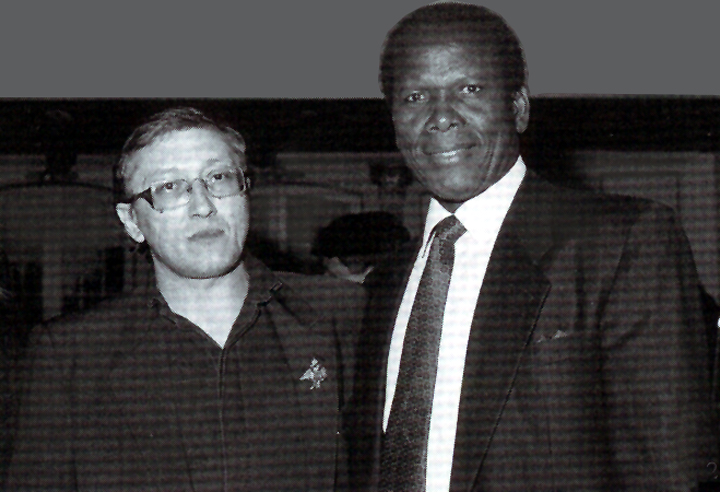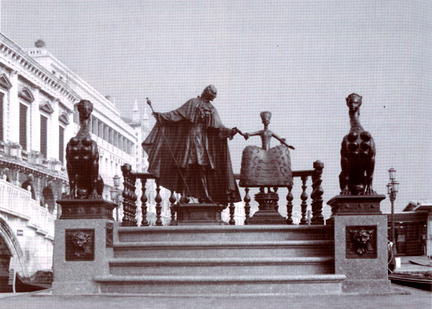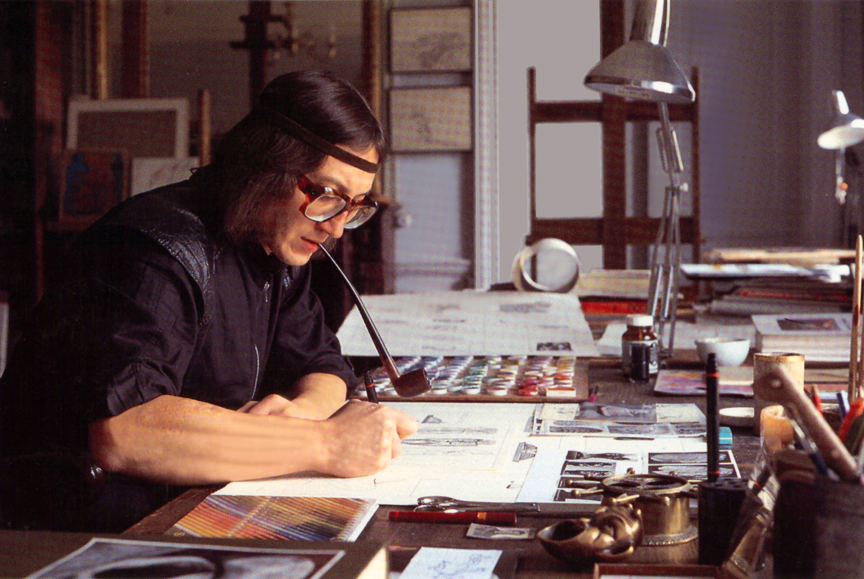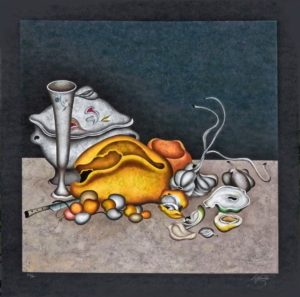Description
Nocturne in Gray & Gold by Mihail Chemiakin
Serigraph on Black Paper
MAKE AN OFFER
All Reasonable Offers will be Considered
$4,500.00 – (Sale Price $1,750.00)
NOCTURNE IN GRAY & GOLD by Mihail Chemiakin is a serigraph in 80 colors on black paper. The size of the image is 36″ X 36″ plus full margin. It was published in 1998 in an edition of only 60. This is one of the most rare of all the graphic works by Mihail Chemiakin.
This print has never been framed or mounted. The print is in a flawless state of preservation.
No picture can show the true beauty and quality of this piece of art. The texture shown in the highlighting, exists throughout the print. The edition from which this print was published includes 40 prints on white paper and 135 prints on canvas plus a small number of Artist’s Proofs; designated E.A. (French for AP)
Chemiakin’s serigraphs are truly master works, representative of his best work in the graphic medium. While he has created in excess of 200 editions of lithographs, he has created only nine editions of serigraphs. His lithographs usually have 12 to 18 colors, while his serigraphs have 75 to 100 colors, and four to six times the image size in square inches.
Anyone wanting to own works by Mihail Chemiakin will find his serigraphs are by far the most beautiful and valuable in the graphic medium and have very limited availability.
ABOUT THE ARTIST – (Click on any picture to enlarge it)
Mihail Chemiakin is one of the foremost international artists of our time. A quote from the Robb Report (Jan. 1995) states “so great are his talents that he is one of the few artists working today who sets the standard by which all other contemporary art is measured”.
He has earned 5 honorary doctorates. The Hermitage Museum held an exhibition in Oct. 1995 of such magnitude that a 7 volume catalog was printed for it.
In the picture shown with Boris Yeltsin, Chemiakin is receiving the ‘State Prize of Russia” for Arts and Letters. President Yeltsin came to Washington DC to make this presentation to Chemiakin, not for a state visit with President Clinton.
The next picture shows Chemiakin with President Gerald Ford.
The next picture shows Chemiakin with President Gorbachov.
The next picture shows Chemiakin with Sidney Poitier.
The next picture shows a scupture of Casanova by Chemiakin in St. Mark’s Square.
The last picture is of Chemiakin painting in 1978.
Chemiakin was born to a military family. His father, a Kabardian from the Caucasus Mountains Mikhail Petrovich Kardanov, had lost his parents and was adopted by a friend of his father, White Army officer Piotr Chemiakin. The artist’s father eventually became a Soviet Army officer. He received one of the first
Orders of the Red Banne at the age of thirteen. Chemiakin’s mother was an actress and poet Yulia Nikolaevna Predtechenskaya of Russian Noble heritage. She met her future husband in 1941 with the start of the Great Patriotic War and asked him to take her to the front line. She served in cavalry under the command of Lev Dovator and took part in battles alongside her husband.
Mihail Chemiakin spent his early years in East Germany where his father served. His family returned to the Soviet Union in 1957. He studied at the secondary school of art affiliated with the Il’ya Repin Institute of Painting, Sculpture and Architecture in Leningrad, but was expelled from it in 1961 for «aesthetic deprivation» of classmates and failing to conform to Socialist Realism norms. Between 1959 and 1971 he worked various niche jobs, in-between which he participated in different art projects.
He later got a job at the Hermitage Museum. With his colleagues from the museum Chemiakin organized an exhibition in 1964, after which the director of the museum was fired and all the participants forced to resign.
In 1967 he founded the group of artists called St. Petersburg. Together with the philosopher Vladimir Ivanov he created a treatise called Metaphysical Synthesism dedicated to «new forms of icon painting based on studying of religious art of all epochs and nations».
He was subjected to forced psychiatric treatment and in 1971 he was exiled from the Soviet Union. According to Chemiakin, the KGB officer behind this actually saved him by offering to «quietly leave the country» with $50 in the pocket, because some people from the Artists’ Union of the USSR insisted on his isolation.
He settled in France where he published Apollon-77, an almanac of post-Stalinist art, poetry, and photography. He moved to New York in 1981. Since the early 1990s he started visiting Russia once again, working on street shows by Slava Polunin, ballets by the Mariinsky Theatre, a TV series by Russia-K and other government-backed projects. In 2007 he returned to France where he currently resides.
Chemiakin works in a broad range of media and subjects, as can be seen in the 2010 two-volume book on his art, Mihail Chemiakin (Azbooka publishers, St. Petersburg).
He has illustrated books for Mikhail Yupp. In 2001, commissioned by the City of Moscow, Chemiakin created a monument “Children Are the Victims of Adult Vices“, a group of sculptures in a park 2000 feet south of the Kremlin, behind the British Ambassador’s residence. Other sculptures by Chemiakin include Peter the Great in St. Petersburg’s Peter and Paul Fortress, Peter the Great in London, Monument to Victims of Terrorism in Vladikavkaz (North Ossetia), Vladimir Vysotsky in Samara, Russia.
Since roughly 2001, he has worked as an artistic designer on the Russian animated feature film Hoffmaniada. In 2001 he directed and designed an entirely new production of The Nutcracker for the Mariinsky Theater, where he also created a second ballet based on the same tale by Hoffman, “The Magic Nut”. In 2010 the artist created a new production of “Coppelia” for the Lithuanian National Opera and Ballet Theater.
